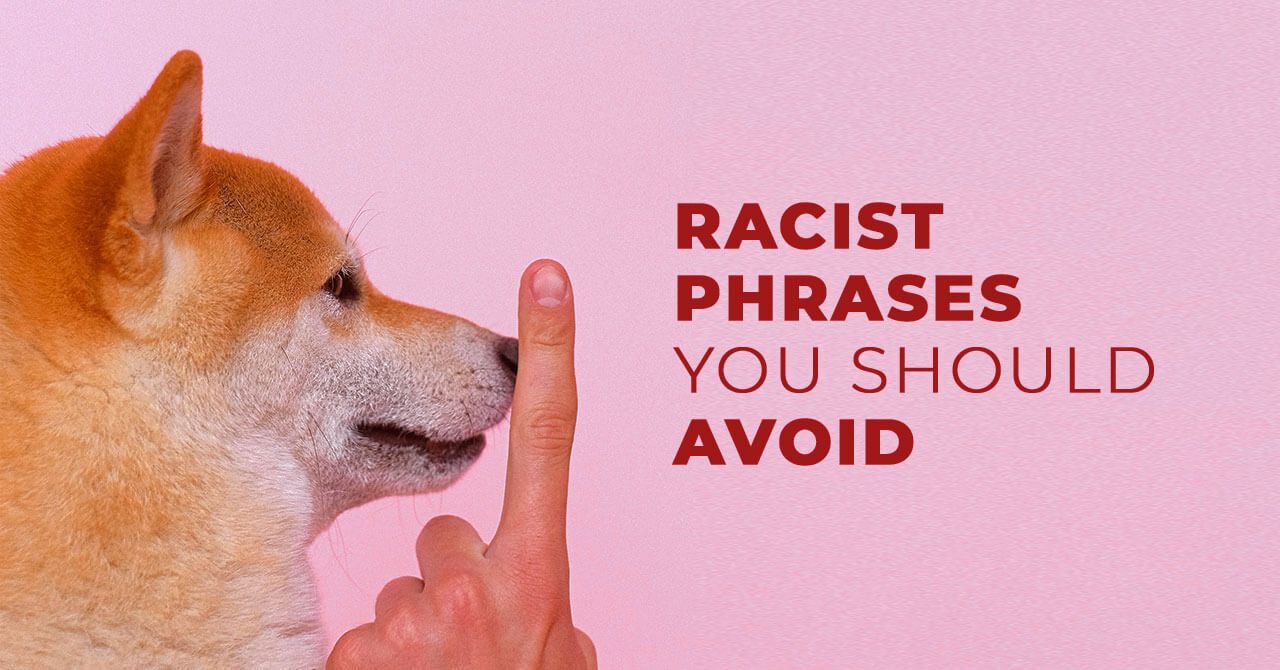
The Racist Meaning Behind “Jipped,” “Uppity,” “Eskimo,” and Other Phrases
In day-to-day life, we rarely think about the words we use and where they come from. As a result, we sometimes unknowingly use words and sayings that have offensive origins.
In day-to-day life, we rarely think about the words we use and where they come from. As a result, we sometimes unknowingly use words and sayings that have offensive origins. It can especially happen to those who are learning English and may use any of the below-mentioned words by mistake.
Racist sayings you should know to avoid
Gypped or jipped
“Gyp” is an informal verb that means to con or swindle someone. The adjective form is “gypped,” and we commonly use it to show that we’ve been robbed, defrauded, or cheated.
Jipped
“Jipped” is a variation of gypped. This spelling is based on pronunciation, yet the meaning and origins are the same.
Gypped etymology
The word gypped comes from the term “gypsy,” meaning an itinerant person. This term is usually used as an offensive slur to refer to Romani people, the Roma nomadic community members. Romani people were once perceived as frauds and thieves, which is how the term “gypped” came about.
Eskimo
For many years, people who live in the arctic have been called Eskimo. The correct term is usually “Inuit,” although it depends on which arctic people you are referring to. “Eskimo” is an endonym, meaning that it is a word used within a particular community to talk about themselves. However, in the past, non-native colonizers used “Eskimo” as a derogatory slur when talking about the arctic communities, which is why it should no longer be used by people outside the communities.
Peanut gallery
A peanut gallery nowadays is a group of people who give unwanted opinions or advice. This term originated in the theater: The upper gallery has cheaper seats because they are further away from the stage. During the Vaudeville era, black people usually occupied these seats due to segregation in the South of the United States. Rowdy and rambunctious spectators would often throw peanuts onto the stage as they heckled performers. This is where the phrase “no comments from the peanut gallery” comes from.
Sold down the river
If somebody betrays you, you may say, “I’ve been sold down the river.” This phrase is not hard to decipher: it refers to the slave trade down the Mississippi and Ohio rivers. In the early 19th century, people were taken to Louisville, Kentucky, one of the biggest marketplaces for slave trading in the USA, where they were subsequently sold down the river to plantations in the south.
Cakewalk
A cakewalk is a very easy task. Historically, a cakewalk or “prize walk” was a dancing competition among Black Americans enslaved on plantations, where the contest prize was a cake. This is also where the expression “takes the cake” originates from.
Uppity
You can describe a person as “uppity” if they are self-important, but there are better words to choose from, such as arrogant, snobbish, or haughty. Uppity was not originally an offensive term; however, white Southerners started using the term to describe Black people who they thought “didn’t know their place” within society.
Moron
Most people are familiar with this insult. Upon first glance, it seems to have nothing to do with race. The word “moron” comes from the Greek moros meaning foolish or dull. Psychologist Henry H. Goddard coined the term “moron” in English to talk about people we would now consider to have an intellectual disability. Goddard would categorize individuals based on their intelligence, and those with low scores were considered undesirable and refused entry into the United States. This means that the people he called “morons” were immigrants. The word was used to support eugenics, racist ideas, and white supremacy.
Freeholder
The New Jersey Board of County Commissioners was, until recently, called the Board of Chosen Freeholders. A “freeholder” is a term originating from a time when only property owners could be elected, and only white males could be property owners, thus excluding all people of color.
Off the reservation
When someone deviates from what’s expected of them, we sometimes say that they go “off the reservation” or go “rogue.” This came from the 1800s when Native Americans were forced to live and remain on designated reservations. When they didn’t comply, they literally went “off the reservation.”
Eenie meenie miney mo
This popular children’s rhyme is used to select someone or something randomly. For example, to decide who goes first in a game or to choose between two equally appealing options. The words are “Eenie meenie miney mo, catch a tiger by its toe.” This isn’t the innocent schoolyard rhyme that it seems to be, as originally, the word “tiger” was actually the n-word.
Avoiding offensive phrases
You can be forgiven for not knowing the racist origins of words and phrases. You cannot be expected to know the etymology of every word you use. That said, you can make an effort to avoid words that you know stem from racism.


















